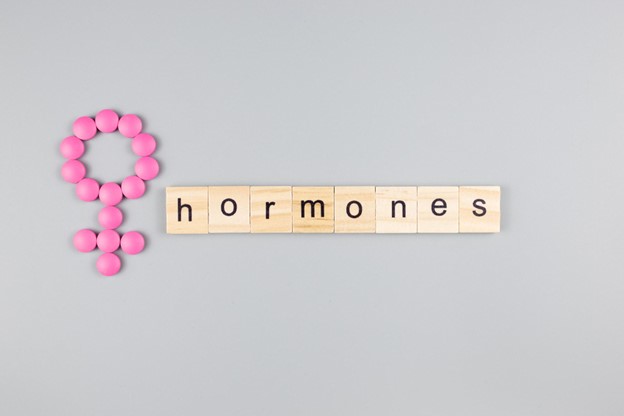Imagine planning for a family and discovering that your doctor says you have low Anti-Müllerian Hormone (AMH) levels. AMH is a hormone indicating how many eggs a woman’s ovaries still have. Think of it as a measure of your fertility reserve. Many women in India are facing decreasing AMH levels. This can make conceiving more challenging, causing distress and emotional turmoil for families.
But here’s some good news: Ayurveda, an ancient healing system from India, offers hope. Low AMH treatment in Ayurveda can provide a natural, holistic path to enhance fertility. Ayurveda focuses on balancing the body and mind, working to improve overall health. This results in a better chance of conception without the side effects of conventional medications. Welcome to the world of Ayurveda where traditional wisdom meets modern health challenges.
Understanding AMH: The Fertility Hormone
AMH acts as a gauge of ovarian potential, giving insights into how many eggs a woman has left. If AMH levels decrease, it often means fewer eggs, making pregnancy more difficult. Various factors can lead to low AMH levels, especially in Indian women. This includes lifestyle issues like stress, unhealthy diets, or environmental toxins.
Medical science often suggests hormone treatments or IVF. Yet, these can be invasive or unaffordable. Meanwhile, low AMH and Ayurveda seeks a more natural approach. Ayurvedic medicine to increase AMH levels includes herbs and practices backed by centuries of use. Unlike conventional treatments that might have side effects, Ayurveda promotes overall well-being and harmony within the body. This ancient approach provides a gentle, holistic alternative.
Ayurvedic Approaches to Boosting AMH Levels
Ayurveda tackles low AMH using two main strategies: Shamana Chikitsa and Shodhana Chikitsa.
- Shamana Chikitsa involves using herbs to balance hormones naturally. One popular option is Shatavari Gulam, known to support women’s reproductive health. These herbs work by nourishing and rejuvenating the reproductive organs.
- Shodhana Chikitsa focuses on detoxification techniques such as Panchakarma. Considered a deep cleansing method, it aims to eliminate toxins from the body. By doing so, hormonal function improves, making the body more conducive for reproduction.
Another component is Rasayana therapy. This involves the use of specific treatments and herbs aimed at replenishing and restoring ovarian cells. These are vital in reawakening youthful vitality and promoting reproductive function.
Ayurveda tailors solutions to each individual, making the treatments unique for every woman. This customization helps address specific causes of low AMH, ensuring effective results. In contrast, conventional methods often use a one-size-fits-all approach. By choosing low AMH level treatment in Ayurveda, the goal is to achieve long-term hormonal balance and ovarian health, thereby enhancing fertility.
Lifestyle and Dietary Measures in Ayurveda
To boost fertility, Ayurveda advises some simple lifestyle changes that anyone can follow:
- Dietary adjustments:
- Include warm, nourishing foods.
- Favoring spices like turmeric and ginger.
- Eat plenty of fresh fruits and vegetables.
- Lifestyle adaptations:
- Regular exercise like walking or yoga.
- prioritize activities that relieve stress, like meditation or deep breathing.
- Rest well, aiming for at least 7-8 hours of sleep.
- Addressing secondary health concerns: Thyroid health and hormonal issues often accompany low AMH. Ayurveda can help balance these with specific herbs and dietary recommendations. With a focus on enhancing overall health, Ayurvedic medicine for low AMH supports long-term well-being, giving many women new hope.
Mind-Body Practices: Yoga and Meditation
Yoga and meditation play significant roles in low AMH treatment in Ayurveda. Certain yoga poses benefit fertility by increasing blood flow to the pelvic region, improving hormonal balance. Baddha Konasana, a simple yet effective pose, can aid in opening the hips and increasing flexibility.
Meditation helps calm the mind and body, reducing stress and its potentially adverse effects on fertility. Practices like pranayama (breathing exercises) contribute to emotional and hormonal equilibrium.
Together, these mind-body practices promote harmony and interconnected well-being. For those facing fertility issues, developing a connection between the mind, body, and spirit offers profound benefits. Following Ayurvedic medicine to increase AMH levels with these practices can provide comprehensive health improvement.
Navigating the Path Ahead with Ayurveda
Several success stories highlight how Ayurvedic medicine for low AMH levels has helped many women. For instance, there are cases where tailored Ayurvedic regimens have resulted in improved AMH levels, making conception possible even where other treatments failed.
Choosing a personalized Ayurvedic plan is crucial. Regular consultations with Ayurvedic specialists ensure these treatments remain effective and tailored to one’s needs. Combining Ayurveda with conventional methods can offer a balanced approach, but professional guidance is essential.
By considering AMH increase medicine in Ayurveda, women can embark on a holistic journey towards better fertility. It’s about renewing hope and realizing the potential for new beginnings. As always, consult with a healthcare professional to find the best path for you, ensuring both safety and success.

